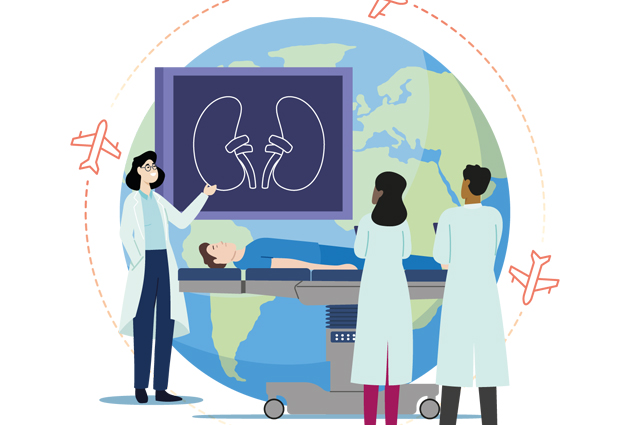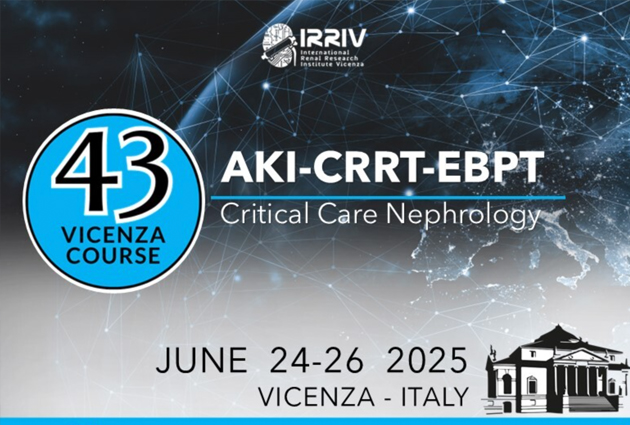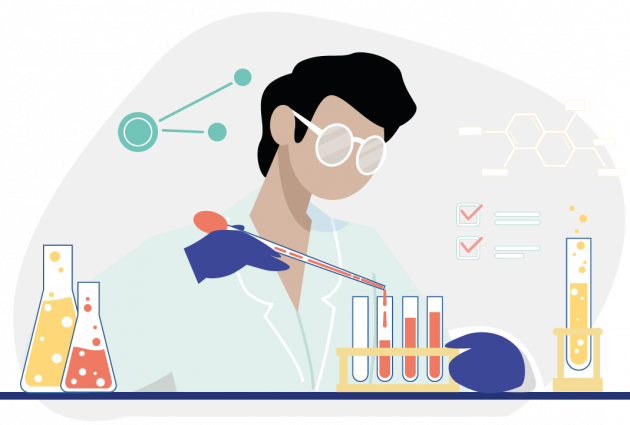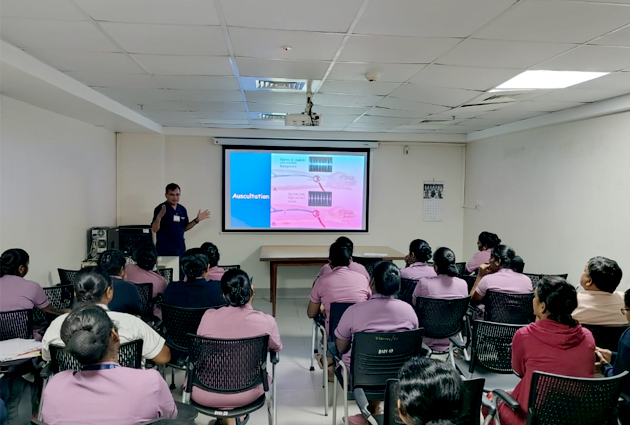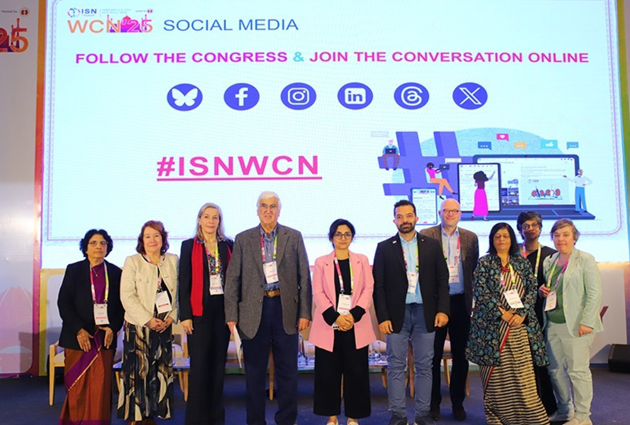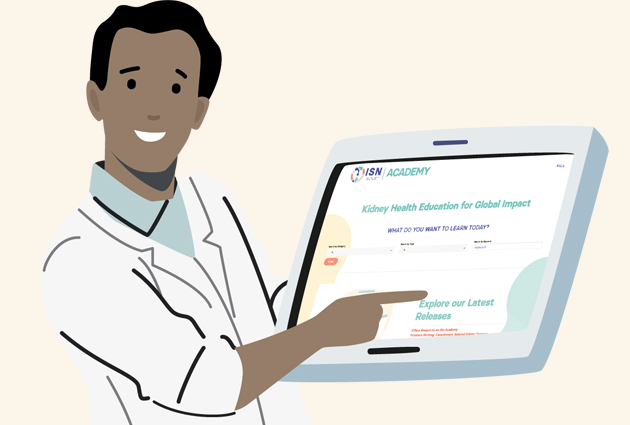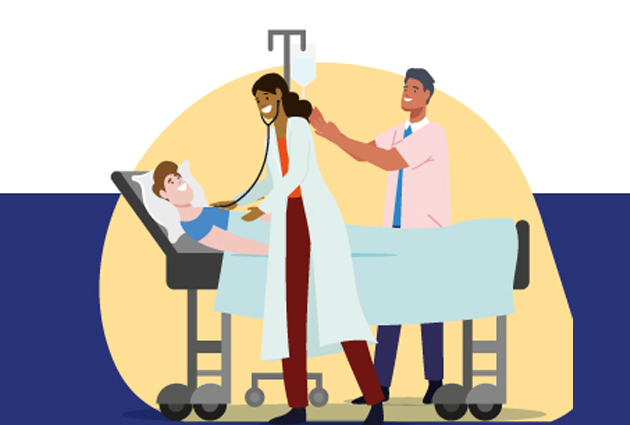Time out with the President
 We meet recently-elected ISN President Giuseppe Remuzzi as he settles into his new role and runs through his objectives for the next two years.
We meet recently-elected ISN President Giuseppe Remuzzi as he settles into his new role and runs through his objectives for the next two years.
Bringing the South closer
“A new gap in capacity has emerged between scientifically proficient developing countries and scientifically lagging developing countries. ISN needs to promote actions to increase the number of post-graduate and post-doctoral fellows moving from one part of the Southern hemisphere to another where centers of excellence are in place to obtain further training.
Clinical research needs promoting, at least in middle-income countries, where resources are potentially available. However, even developing countries that have successfully strengthened their scientific capacity have proven to be more adept at building their knowledge base than applying the knowledge that their physicians/scientists acquire to address societal concerns.
The most critical shortfall in these efforts has been an inability to forge strong links between universities and hospitals, largely funded by governments, and the private sector, which is admittedly weak in most developing countries. This is beginning to take place in several countries notably Brazil, China, India, and to a lesser extent, Malaysia and South Africa. But the reforms need to gather speed to close the gap between the North and the South.”
Education and training
“The accomplishments of the nephrology community in promoting strategies for preventing, diagnosing and treating kidney disease on a global level in the last decade have been impressive, thanks to the achievements of basic and clinical research. Nephrologists need to spread the outcome of research on a global basis, and transfer new opportunities for diagnosis, prevention and treatment of kidney diseases in the developing countries.
ISN commitment to education and training has been particularly strong. Continuing Medical Education courses bring essential teaching and training to some 12,000 doctors and healthcare practitioners in the world each year. Educational Ambassadors allow centers in the emerging world to request an expert to join them onsite to provide very specific training. Finally, the Sister Renal Center program enhances co-operation between nephrology
centers worldwide.”
Mother and Child Health Promotion
“The hypothesis of the fetal origin of adult chronic non-communicable disease such as systemic arterial hypertension, diabetes and chronic kidney disease (CKD) has gained experimental and epidemiological support during the last two decades. Low birth weight is responsible for structural kidney changes, such as for example a lower number of nephrons, which can increase susceptibility to kidney damage from diseases such as hypertension and diabetes.
The association between low birth weight and CKD may be related to intrauterine malnutrition and/or any adverse intrauterine environments. Because these events are common in developing countries, these mechanisms may result in establishing a population in which many adults are particularly susceptible to develop CKD and cardiovascular diseases. These observations imply that CKD would affect not only a large number of people in the developing world, but preferentially the poor within these countries.”
Acute Kidney Failure: 0 by 25
“The challenges posed by acute kidney failure in high-income countries are different from those in low-income countries. They include limited resources for diagnosis, late or no referral to nephrology services and the lack of access to renal replacement therapy. It is the duty of the international nephrology community to support the development of strategies in low-income countries that permit a timely diagnosis of acute kidney failure and provide access to renal replacement therapy for patients with potentially reversible diseases.
It is morally inexcusable that people – mostly young people – still die of untreated acute kidney failure. In this context I would like to launch a new initiative, a Presidential one that might be followed by others. My own will be “0 by 25”. I believe that prevention and treatment of acute kidney failure should be considered a human right as it has been and still is for the treatment of AIDS.
ISN must advocate a human right case statement that 0 people should die of untreated acute kidney failure in the poorest parts of Africa, Asia and South America by 2025. This requires leadership by ministries of health, as well as robust governance systems to implement any decision. We can also build on the ground of the collaboration with the World Health Organization that we have developed during the last years.”


